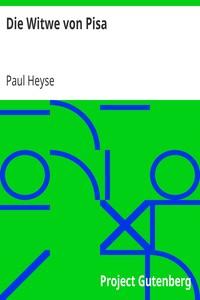Read this ebook for free! No credit card needed, absolutely nothing to pay.
Words: 109405 in 56 pages
This is an ebook sharing website. You can read the uploaded ebooks for free here. No credit cards needed, nothing to pay. If you want to own a digital copy of the ebook, or want to read offline with your favorite ebook-reader, then you can choose to buy and download the ebook.
THOROUGHBREDS
by W. A. Fraser
Dedicated to a THOROUGHBRED MY WIFE
Less than a hundred miles from the city of Gotham, across broad green fields, dotted into squares and oblong valleys by full-leafed maple, and elm, and mulberry, was the village of Brookfield. A hundred years of expansion in the surrounding land had acted inversely with the little hamlet, and had pinched it into a hermitical isolation.
The Brookfieldians had discovered a huge beetle in the amber of their serene existence; it was really the Reverend Dolman who had unearthed the monster. The beetle in the amber was horse racing, and the prime offender, practically the sole culprit, was John Porter.
Even in the Porter household, which was at Ringwood Farm, was divided allegiance. Mrs. Porter was possessed of an abhorrent detestation of horse racing; also an assertive Christianity. The daughter, Allison, had inherited the horse taint. The swinging gallop of a striving horse was to her the obliteration of everything but sunshine, and the smile of fields, and the blur of swift-gliding hedges, and the driving perfume of clover-laden winds that passed strong into spread nostrils. For Alan Porter, the son, there were columns of figures and musty-smelling bundles of tattered paper money where he clerked in the bank. There had been great unison in the Porter household over the placing of Alan. In addition to horse lore, John Porter was a fair judge of human nature, and, beyond doubt, there was a streak of velvet in Alan which would have twisted easily in the compressive grip of the race course.
The Porter family were not the only dwellers of Brookfield who took part in racing. Philip Crane, the banker, wandering from the respectable highway of finance, had allowed himself to become interested in race horses. But this fact was all but unknown in Brookfield, so the full resentment of the place was effusively tendered to John Porter.
In his younger days some money had come to Philip Crane. The gambler spirit, that was his of inheritance, had an instinctive truth as allied to finance; but, unfortunately for Philip Crane, chance and a speculative restlessness led him amongst men who commenced with the sport of kings. With acute precipitancy he was separated from the currency that had come to him. The process was so rapid that his racing experience was of little avail as an asset, so he committed the first great wise act of his life-turned his back upon the race course and marched into finance, so strongly, so persistently, that at forty he was wealthy and the banker of Brookfield.
Twenty years of deliberate reminiscence convinced him that he could gratify the desire that had been his in those immature days, and possibly work out a paying revenge. Thus it was that he had got together a small stable of useful horses; and, of far greater moment, secured a clever trainer, Dick Langdon.
Crane's latter-day racing had been successful--he made money at it. No man was ever more naturally endowed to succeed on the turf than was Banker Philip Crane. Cold, passionless, more given to deep concentrated thought than expression, holding silence as a golden gift--even as a gift of rare rubies--nothing drew from him an unguarded word, no sudden turmoil quivered his nerve. It was characteristic of the man that he had waited nearly twenty years to resume racing, which really came as near to being a passion with him as was possible for anything to be. There is a saying in England that it takes two years of preparation to win a big handicap; and these were the lines upon which Philip Crane, by instinctive adaptation, worked.
Quite by chance Dick Langdon had come into his hands over a matter of borrowed money. It ended by the banker virtually owning every horse that raced in the trainer's name. In addition, two or three horses ran in Philip Crane's own name. If there had been any distinctive project in the scheme of creation that gave Dick Langdon to the world, it probably was that he might serve as the useful tool of a subtle thinker. Now it did seem that Langdon had come into his own--that he had found his predestined master.
John Porter had not been successful; ill fortune had set in, and there was always something going wrong. Horses would break down, or get beaten by accident--there was always something. The steady financial drain had progressed even to an encumbrance on Ringwood.
Free books android app tbrJar TBR JAR Read Free books online gutenberg
More posts by @FreeBooks











